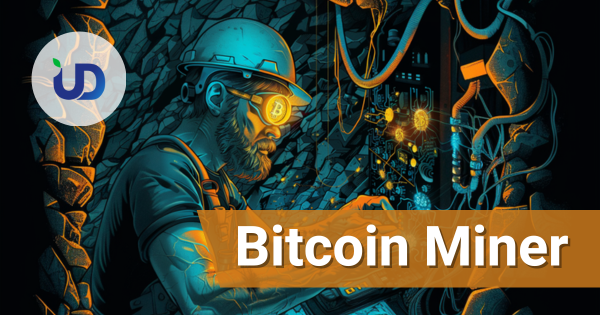Explaining Bitcoin Miners: Powering Blockchain Growth and Future Trends
The world of cryptocurrency can be a labyrinth of technical jargon and complex processes. One term that frequently pops up is "bitcoin miner." But what exactly does a bitcoin miner do, and how do they impact the entire blockchain ecosystem? This blog dives deep into the world of bitcoin miners, explaining their role, their influence on the blockchain, and how their fortunes are intertwined with the growth of cryptocurrency.
Unveiling the Bitcoin Miner
Forget images of miners swinging pickaxes underground. Bitcoin miners are the lifeblood of the Bitcoin network, but their tools are far more sophisticated than traditional mining equipment. Bitcoin miners utilize powerful computers equipped with specialized hardware, like Application-Specific Integrated Circuits (ASICs), to solve complex mathematical puzzles.
These puzzles are at the heart of the security and stability of the Bitcoin network. Each puzzle acts as a cryptographic lock on a block of transactions. The first miner to solve the puzzle unlocks the block, verifies the legitimacy of the transactions within, and permanently adds the block to the ever-growing public ledger - the blockchain.
The Vital Role of Miners: Beyond Block Creation
While block creation is a crucial function, bitcoin miners play a more significant role in the grand scheme of things. Here's a breakdown of their key responsibilities:
Securing the Network: By solving the complex puzzles, miners compete to add new blocks to the blockchain. This competition creates a decentralized system where no single entity controls the network. This distributed verification process makes the blockchain tamper-proof, ensuring the security and integrity of all transactions.
Transaction Validation: Miners act as auditors, meticulously verifying every transaction within a block. They ensure the sender has sufficient funds and that the transaction hasn't been duplicated. This validation process helps prevent fraud and maintains the transparency of the entire network.
Issuing New Bitcoins: With each new block added to the blockchain, miners are rewarded with a set amount of bitcoins. This process is how new bitcoins enter circulation and incentivizes miners to dedicate their computational resources to securing the network.
The Balancing Act: Mining Difficulty and Network Security
The difficulty of the mathematical puzzles plays a vital role in maintaining the health of the Bitcoin network. As more miners join the network, the difficulty automatically adjusts to ensure a consistent block creation time (typically around 10 minutes). This ensures a steady flow of new bitcoins while preventing the network from becoming overly centralized.
However, the increasing difficulty also leads to a rise in the computational power required for mining. This has resulted in the emergence of large-scale mining pools, where individual miners combine their resources to increase their chances of solving a block and sharing the rewards.
The Environmental Conundrum: The Energy Cost of Mining
One of the biggest criticisms surrounding bitcoin mining is its significant energy consumption. The complex calculations performed by miners require immense computing power, which translates to a high energy demand. This raises concerns about the environmental impact of bitcoin mining, especially when the source of that energy comes from non-renewable sources.
However, the conversation is evolving. The rise of renewable energy sources for powering mining rigs and the development of more energy-efficient mining algorithms offer a glimmer of hope for a more sustainable future for bitcoin mining.
The Symbiotic Relationship: Miners and the Growth of Cryptocurrency
The success of bitcoin and other cryptocurrencies is intricately linked to the health of their respective mining ecosystems. As the value of a cryptocurrency increases, so does the potential reward for miners. This incentivizes more miners to join the network, leading to increased security and stability.
Conversely, a decline in cryptocurrency value can lead to miners abandoning the network in search of more profitable ventures. This can negatively impact the security and efficiency of the blockchain.
In the ever-evolving world of cryptocurrency, Bitcoin miners stand as the backbone of the blockchain. They play a critical role in securing the network, validating transactions, and issuing new coins. Their fortunes are intertwined with the growth of cryptocurrency, and their impact on the future of this innovative technology is undeniable. As the industry evolves, addressing the environmental concerns surrounding mining will be crucial for ensuring long-term sustainability.
UD is a leading blockchain and network security solution provider in Hong Kong. We are dedicated to assisting enterprises in advancing their businesses through innovative blockchain technology, ushering in a new era from Web 2.0 to Web 3.0.



